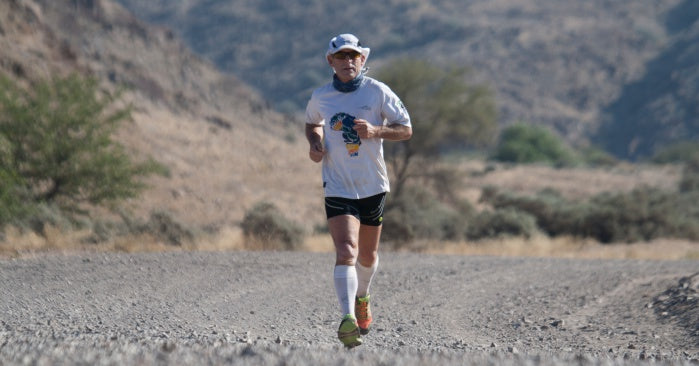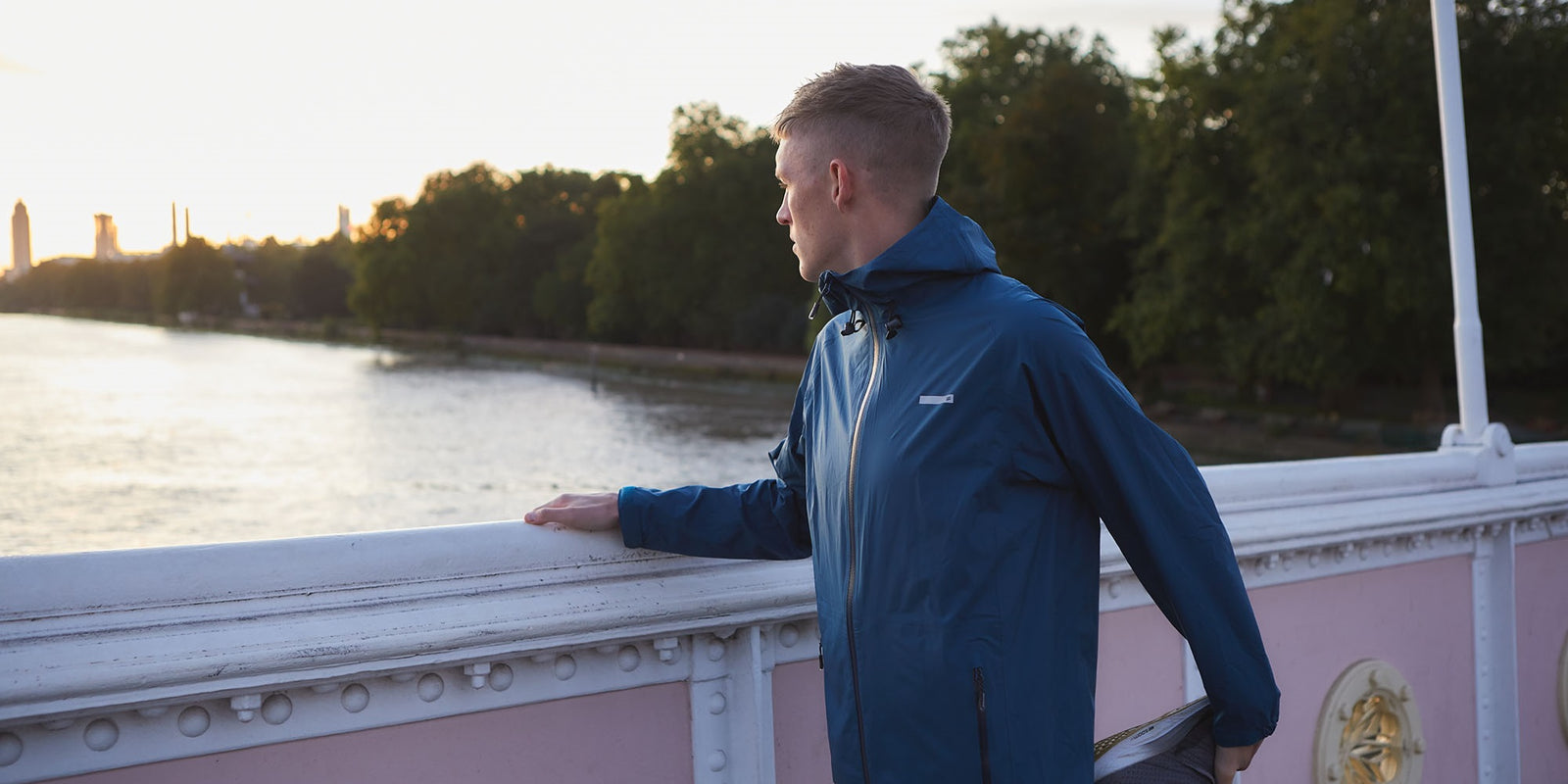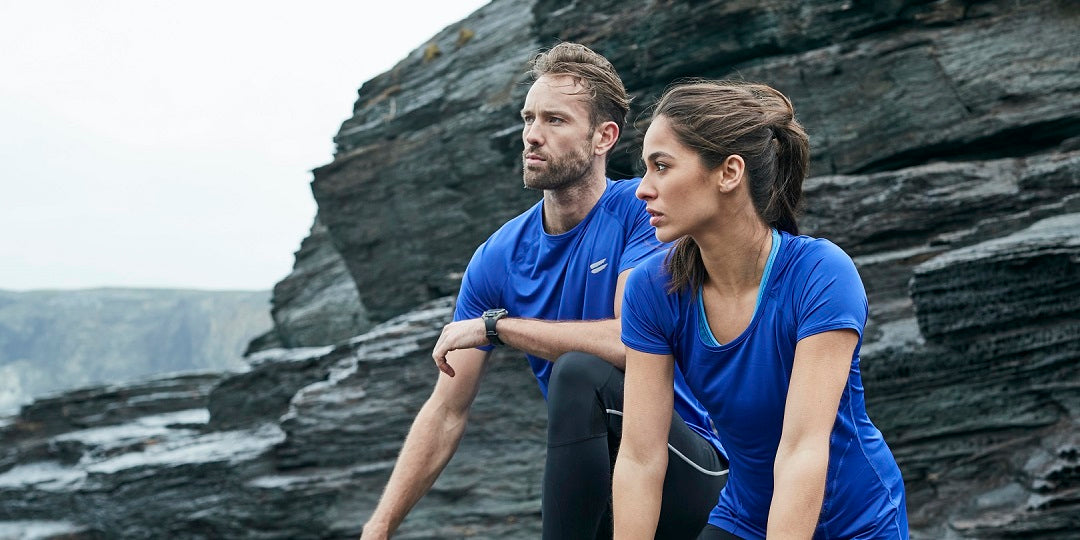This week we introduce our latest running ambassador, Jonathan O’Hanlon; the first person to run across Africa (raising awareness and funds for elephant conservation and water sustainability), a life skills coach and motivational speaker.
When did you start running?
This isn’t an easy question to answer, and the reason for that is rather strange. As I always tell people with a little laugh and a sheepish grin, “I’m not really a runner.” I consider someone who is a ‘runner’ to be someone who does running as their sport fairly exclusively, and is a member of a running club, goes for runs with the club 2 or 3 times a week, and is on the treadmill of entering for races, recording their times, and being in the running crowd. And even though I have done a huge amount of running, and I run all the time, at least a few times a week, I have never done any of the “being in the running crowd things.” I discovered that I had the mental capacity to endure and do well at long, arduous running when I was 17, in 1975, whilst undergoing the year long Naval Officer training and I ran my first marathon 10 years later in 1985.
What does running mean to you / why do you run?
Now that I am older, and wiser, I can look back at all the running that I’ve done and I understand the surface reason for my running, as well as the three underlying truths. I have always run so as to maintain a high level of fitness, and at the same time to stay in shape. In my younger years and in to my late thirties I played many ball sports competitively: rugby, soccer, tennis, golf, field hockey and cricket, and the last two at a reasonably high level. Here’s truth number one – I always considered myself to be less skilful than many of my team mates and inadequate so I excelled at being the fittest player on the field, always, even to today. Secondly, body consciousness – lots of running not only keeps me fit but also keeps me in shape. And here’s another reason that I say that I’m not really a runner – my exercise routine includes strength training, calisthenics, at the gym or at home, cycling, and swimming. And yes, at one time I did do several triathlons. Thirdly, I run because it is my escape, it is my coping mechanism. I am fortunate that I have this “good” addiction as my coping mechanism rather than the obvious bad addictions. Life is hard, and when troubled times have struck, and there have been many, I get out there into Nature, into the hills and mountains and trails, along the beach, and in the forests – and I run. I have never once felt alone when I’ve been out there, and it always calms my mind, brings me peace, and the insights, intuitions, and solutions that I need.
What is on your running bucket list?
I have three runs that are on my list, the first two as training runs really for the last one. The Addo Elephant Trail Run, either the 100 mile, or the 76 km run. The Kalahari Augrabies Extreme Marathon, a self-sufficient run over 7 days, covering an approximate distance of 250 km in the Kalahari Desert. Lastly, to run across Africa again, this time almost double the distance, for water, and this time to achieve my dream, which is not to do the run but to raise awareness and funds for the issue of water scarcity in sub-Saharan Africa.
Do you prefer run alone or in a group?
Both, but very definitely each with specific reasons. It is great to train with others and run in a group, and as I’m sure most people who do any form of exercise will know, having a training buddy or a group that you’re in makes a huge difference to your motivation to show up in the first place. However, when doing a run where heavy endurance is required I definitely prefer to run alone. When the going gets tough and the blood sugar gets low, your mind is going to start getting ratty and pretty much everything about the person running alongside you will be a source of irritation – they’re running too fast, or too slow, they’re too close, they’re running in the best and easiest track, they’re talking too much etc. etc.
How has running changed you?
I think that even though I say I’m not a runner, my ability to run and to keep going and endure set me on a path of varied achievements that built onto each other, in my mind, unknowingly at the time, and added to my self-confidence and self-esteem. My personal bests for 5 km time trial, hockey, cricket, and the extreme events that I have done have all been thanks to running, which has endowed me with superior fitness, mental strength, and a belief in myself. There is no doubt that a parallel can be drawn from this into the other aspects of my life. The mental endurance that I’ve learned through running I have been able to apply when life was at its worst, and not only could I turn to running to cope, but I could also apply my mental stamina and endurance to persevere and prevail.
How do you convince yourself to get out of the door on days you just don’t feel like it?
Big smile – with great difficulty. It always surprises the people that I talk to who struggle with their own exercise routine and discipline when I tell them that I face exactly the same thing that they do. The way that I deal with this is that I now know and recognise the signs and the tricks that my body and mind are going to play to try and stop me going for a run, and I smile at them, and I push through them. As I am putting on my running shoes just before going out of the door I always feel a huge wave of exhaustion come over me. My mind also reminds me that the first few km are going to be very unpleasant; maybe it is cold out there, I’m going to struggle to breathe, and most of all my knees are going to hurt. I replace these thoughts with a few others, positive ones and one’s that bring me pleasure and enjoyment: It’s always hard at the start, for everyone, and I’ve done this before so now it’s easy; I only need to run for a few hundred metres and the knee pain will go away, I know this; after the first few hundred metres I’m already warm; after the first 6 or 7 km I’ll be in cruise mode and then the enjoyment of being out in Nature really kicks in; I’m proud of myself for going out in these conditions to exercise, good for me; hey, I’m good at this, look at me going out for another run, look at how fit I am. I usually win the war, but I don’t force it if my body, or mind, genuinely show me that it’s too depleted, I’ll know this within the first 2 minutes of running.






Leave a comment (all fields required)